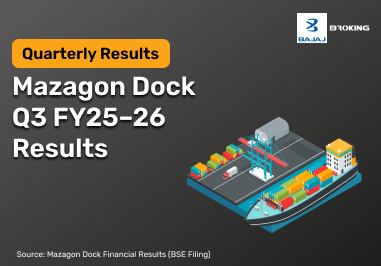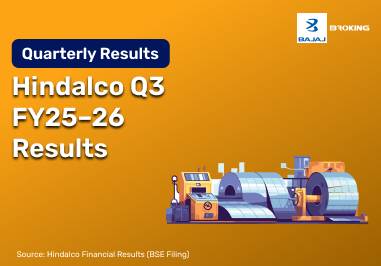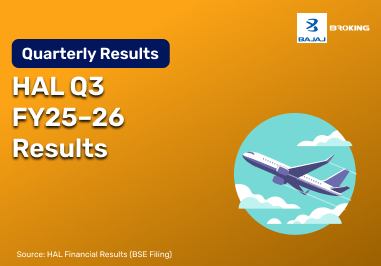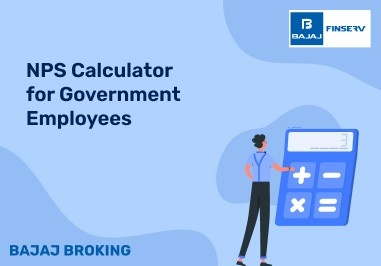For those who have yet to explore the bond market in India, incorporating these fixed-income instruments into an investment portfolio requires careful study. Gaining a comprehensive understanding of how bonds function, their role in financial planning, and the different types available is essential. This guide provides a thorough introduction to the bond market, detailing its mechanics, structure, and the various bonds that investors can consider.
Bond Market Meaning
The bond market is a financial venue where bonds are issued, bought, and sold. When purchasing a bond, a person effectively loans money to a government or company and, in turn, receives interest consistently until the bond matures.
For investors, the bond market serves as both a meeting point (between the capital "borrowers" and capital "lenders") and provides them with visibility into risk and reward, as well as interest rate changes over time. Each bond has its own characteristics, and investors observe how price shifts represent the economic outlook.
Also Read: What is a Bond ETF?
History of the Bond Markets
The concept of lending through formal debt instruments has existed for centuries. Early European states used bonds to finance voyages, trade routes, and territorial expansion. As societies developed, bonds became a structured way to raise funds for essential public activities.
Later, during the industrialisation period, companies started to issue bonds in relation to building railroads, factories, and other infrastructure. It can be seen how this involved the issuance of bonds, and as it matured, it started to develop the characteristics of a more organised and transparent market. More players in the market reinforced depth and credibility.
Initially, government securities dominated the earlier decades, and as industries began to grow, corporate bonds gradually emerged thereafter. Investors see how the bond market is now available through digital platforms.
Stability of Bond Prices
Bond prices tend to show more stability because they react mainly to interest rates instead of daily speculation. When the Reserve Bank of India changes policy rates, bond prices adjust accordingly. The relationship between rates and bond values is clear and predictable.
Demand patterns influence stability. When more investors seek steady income, bonds experience smoother price movements. Inflation expectations, credit ratings, and global economic cues also affect how stable or volatile prices feel at any point.
This stability often comforts investors, especially when other assets experience sharp swings. It helps them maintain balance and predictability in their financial planning.
How Does the Bond Market Work?
The bond market connects borrowers and investors. Governments and companies issue bonds to raise money to fund their operations, and investors buy bonds and earn interest on them. This takes place in primary and secondary markets. Here is how the bond market works.
Primary Bond Market
In the primary bond market, issuing entities like governments, public sector undertakings (PSUs) and other companies issue new bonds. The transaction occurs directly between the issuing entity and the investors. This is similar to the IPO market in the stock market segment.
Secondary Bond Market
In the secondary bond market, these securities are freely bought and sold between investors themselves. The entities that issued the bonds do not directly participate in this market segment. Trades between investors occur either on the exchanges like the NSE and the BSE or via the over-the-counter (OTC) market.
Additional Read: Sovereign Gold Bond
Types of Bond Markets
1) Types of Bond Markets Based on Buyers:
| a) Primary Market - This is the main market where bond issuers directly sell bonds to investors. New debt securities are issued here.
b) Secondary Market - This market offers flexibility, allowing bonds initially bought in the primary market to be resold. Brokers play a key role in facilitating these transactions.
|
|
2) Types of Bond Markets Based on the Type of Bond:
| a) Corporate Bonds
b) Agency Bonds
c) Savings Bonds
d) Municipal Bonds
e) Treasury Bonds
|
|
|
|
|
Types of Bond Markets Based on Type of Bond
After understanding what the bond market is and how it functions, it is useful to explore the different segments within it. Each type represents a category of bonds and plays a distinct role in the overall debt market landscape.
Government Bonds
Government bonds form one of the major segments. These are issued by central or state authorities to raise funds for public expenditure. They are backed by the government and generally carry relatively lower coupon rates when compared with securities that involve higher risk exposure.
Municipal Bonds
Municipal bonds are issued by local municipal bodies to fund infrastructure and development projects. These instruments are traded in the municipal bond segment and may carry certain tax-related benefits depending on applicable regulations.
Corporate Bonds
Corporate bonds are issued by private or public companies to finance business needs. Their interest rates and risk levels vary based on factors such as the credit profile of the issuing organisation and market conditions. Credit ratings are often used as an indicator of an issuer’s repayment capability.
Emerging Bonds
Emerging bonds represent the bond market of developing economies and may consist of government, municipal, and corporate securities.
Treasury Bonds
Treasury bonds and savings bonds are issued by the Department of the Treasury. They differ in purpose, tradability, maturity periods, and interest structures and are used by investors based on individual financial objectives and preferences.
Additional Read: Types of Bond Market in India
How to Invest In Bonds in India for Beginners?
In case you want to invest in government bonds, you can do this in any of the following ways:
- Through the RBI Retail Direct platform
- Through the NDS-OM secondary market
- Through your stockbroker’s trading platform
However, if you want to invest in corporate bonds, you can choose to buy them during a new issue or in the secondary market.
Should You Invest in the Bond Market in India?
The bond market in India may be worth considering in various scenarios. Typically, you could benefit from investing in bonds if:
You are Risk-Averse
If you are a conservative investor, the bond market gives you many investment options that carry low or negligible risk.
You Need a Source of Income
If you are looking for a source of guaranteed income to either add to or replace your primary income, bonds can be suitable options.
You Want to Reduce Your Portfolio Risk
Bonds also help bring down the overall risk in your portfolio. This can be particularly useful if your investments are currently equity-heavy.
You Want to Diversify Your Portfolio
You can also use bonds to diversify your portfolio across different asset classes and market sectors without amplifying the risk too much.
Bond Market vs Stock Market
When considering both markets, the differences are fairly obvious. Bonds are a type of lending that involves contractual periodic interest payments. The stocks are owned, and returns depend on the business and market direction.
The bond prices mostly move with interest rate expectations, while stocks move with earnings, sentiment, and global events. The bonds are considered to be comparatively lower risk than stocks.
The returns from bonds are contractual, while those from stocks are variable and change almost daily. Also, bonds are rated based on the issuer’s creditworthiness, while stocks are dynamic in behaviour.
Additional Read: Difference Between a Demat Account and a Bank Account
Additional Read:- How Does Bond Work















